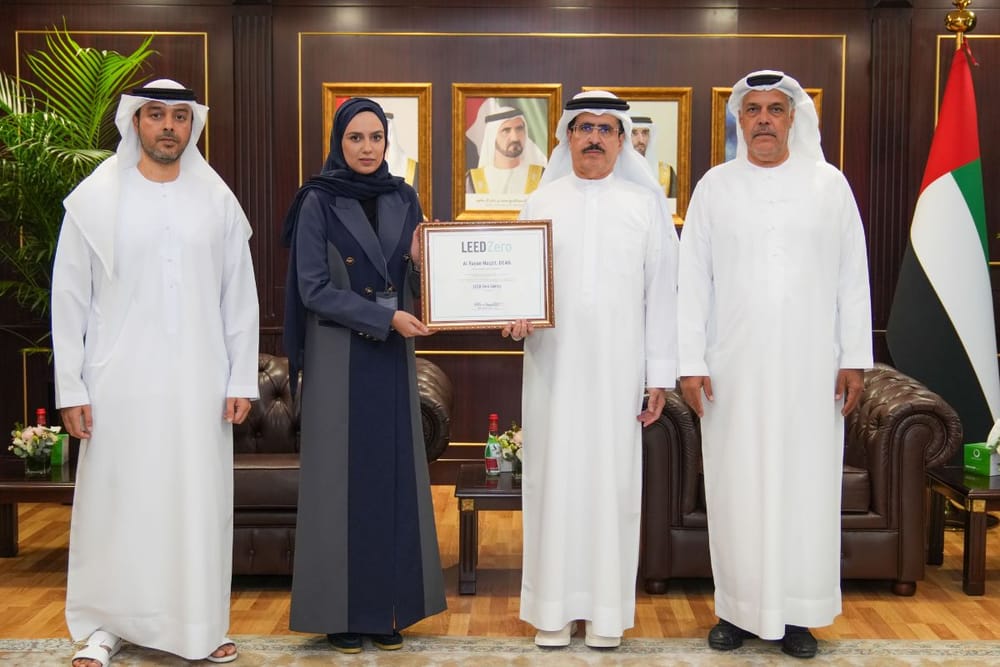
The LEED Zero Certification is awarded by the U.S. Green Building Council (USGBC) and recognizes buildings that have achieved net-zero carbon emissions, meaning they produce as much energy as they consume over a year. This certification also emphasizes buildings that operate at peak energy efficiency, contributing positively to their surrounding environment.
The mosque’s achievement is a significant step in DEWA's broader mission to advance sustainable practices across the city. By incorporating cutting-edge technologies and eco-friendly designs, Al Rayan Masjid stands as a model for future developments in Dubai and beyond.
Constructed with a focus on reducing environmental impact, the mosque employs a range of sustainable features. These include advanced solar panels, which generate renewable energy to power the facility, and an innovative water conservation system that minimizes water usage. The design also incorporates green roofs and walls that enhance thermal insulation and reduce the building's overall energy requirements.
The mosque's dedication to sustainability extends beyond its physical structure. Its operational practices, such as efficient waste management and the use of non-toxic materials, contribute to its overall environmental performance. These efforts reflect a growing trend in Dubai and the UAE, where the emphasis on green building practices aligns with the nation’s Vision 2030 goals for sustainable development.
Al Rayan Masjid's achievement aligns with DEWA’s commitment to promoting green practices and supporting the UAE's sustainability objectives. The organization has been at the forefront of initiatives that aim to reduce carbon footprints and enhance energy efficiency across various sectors.
This certification not only highlights the mosque’s role in promoting environmental responsibility but also serves as an inspiration for other religious and public buildings around the world. As the first of its kind to achieve this status, Al Rayan Masjid sets a precedent for integrating sustainability into architectural and operational practices.
The milestone has been celebrated by various stakeholders, including local government officials and environmental advocates, who view it as a testament to Dubai's leadership in sustainable development. The achievement also reinforces the city's position as a global leader in implementing innovative and environmentally friendly building solutions.
With the success of Al Rayan Masjid, there is an anticipated increase in similar initiatives aimed at achieving LEED Zero Certification. The precedent set by the mosque may encourage other institutions and developers to adopt sustainable practices and pursue similar certifications, further advancing global environmental goals.
In addition to its environmental benefits, the certification contributes to the broader dialogue on the role of faith-based institutions in promoting sustainability. Al Rayan Masjid’s accomplishment demonstrates how places of worship can play a pivotal role in fostering ecological awareness and advocating for responsible environmental stewardship.
As cities worldwide grapple with the challenges of climate change and environmental degradation, Al Rayan Masjid’s achievement serves as a beacon of hope and a call to action. Its success story highlights the potential for integrating advanced sustainable practices into diverse types of buildings and facilities, reinforcing the message that environmental responsibility is achievable and essential.
DEWA’s announcement not only marks a significant achievement for Al Rayan Masjid but also reflects a larger movement toward integrating sustainability into all aspects of urban development. The mosque’s LEED Zero Certification is expected to inspire future projects and contribute to the global conversation on building practices that prioritize the health of the planet.
Topics
Live News
